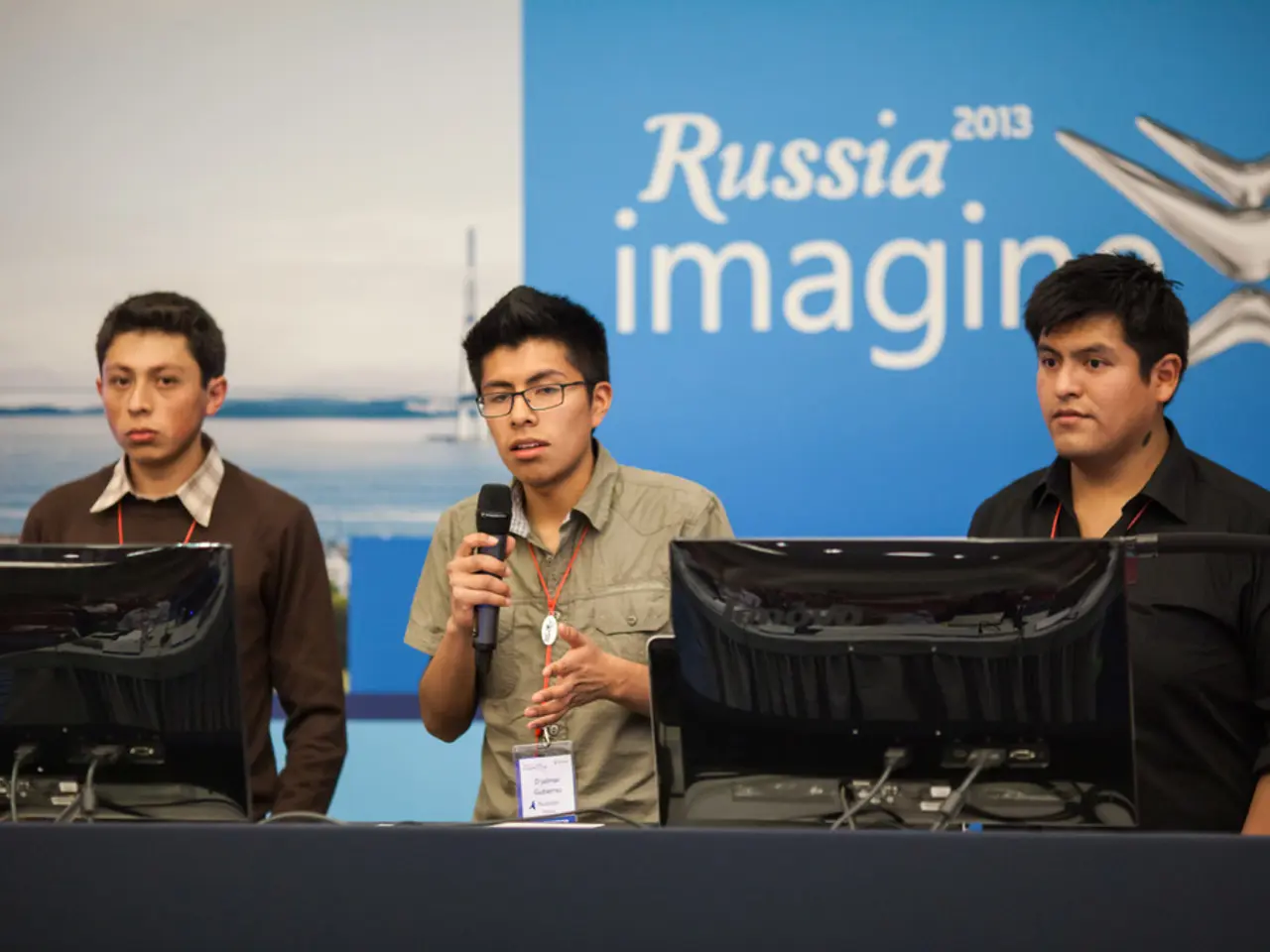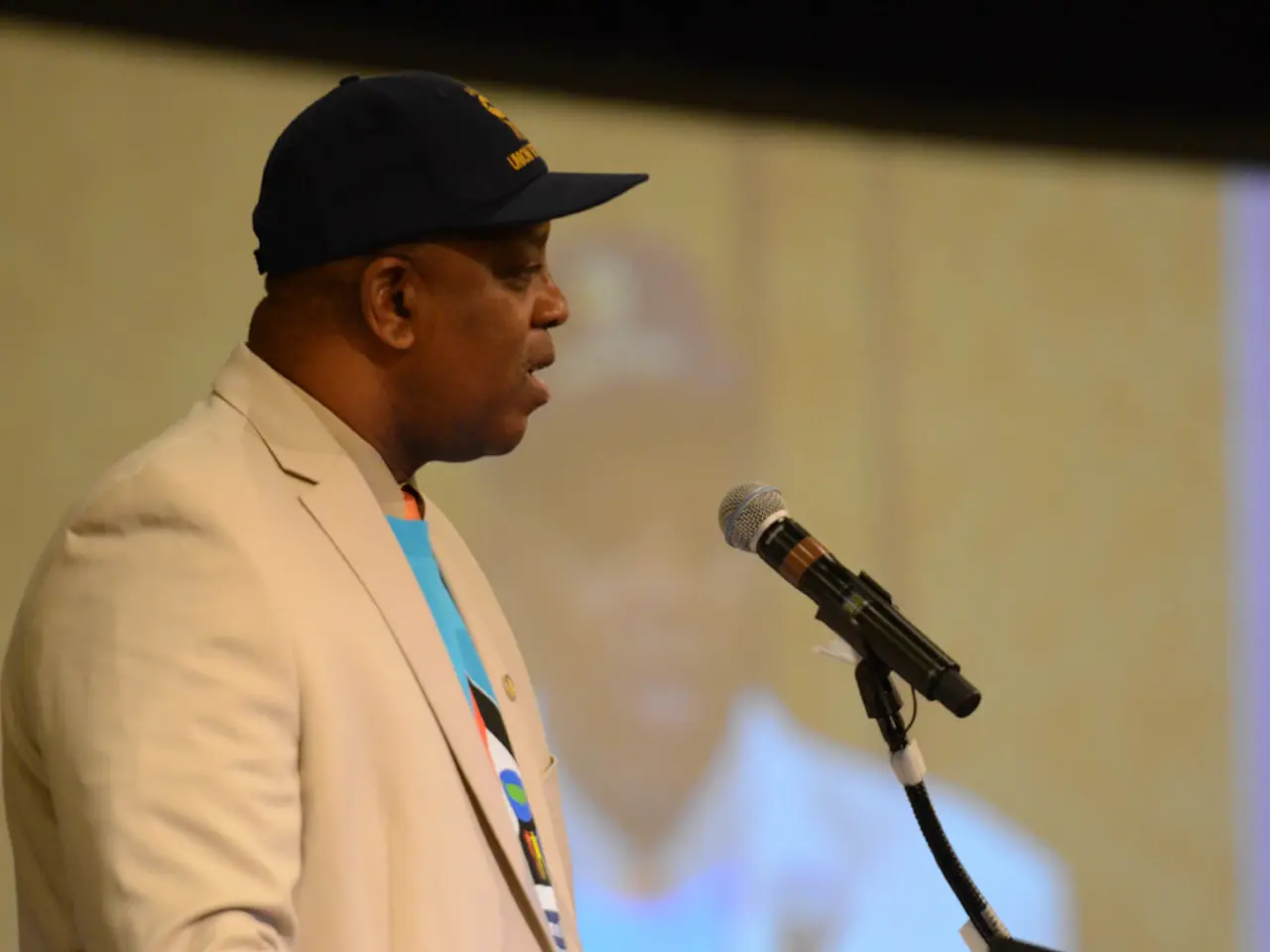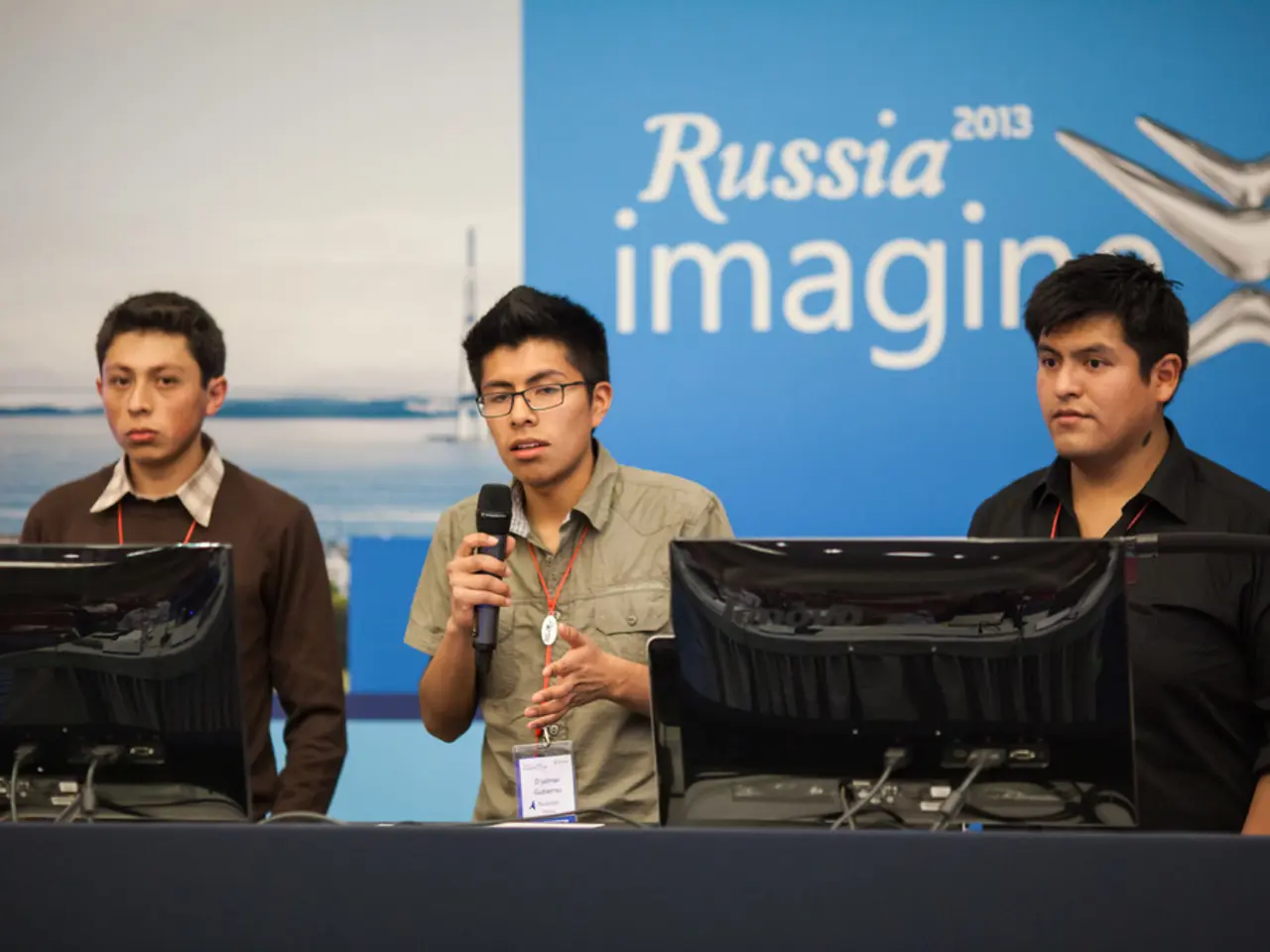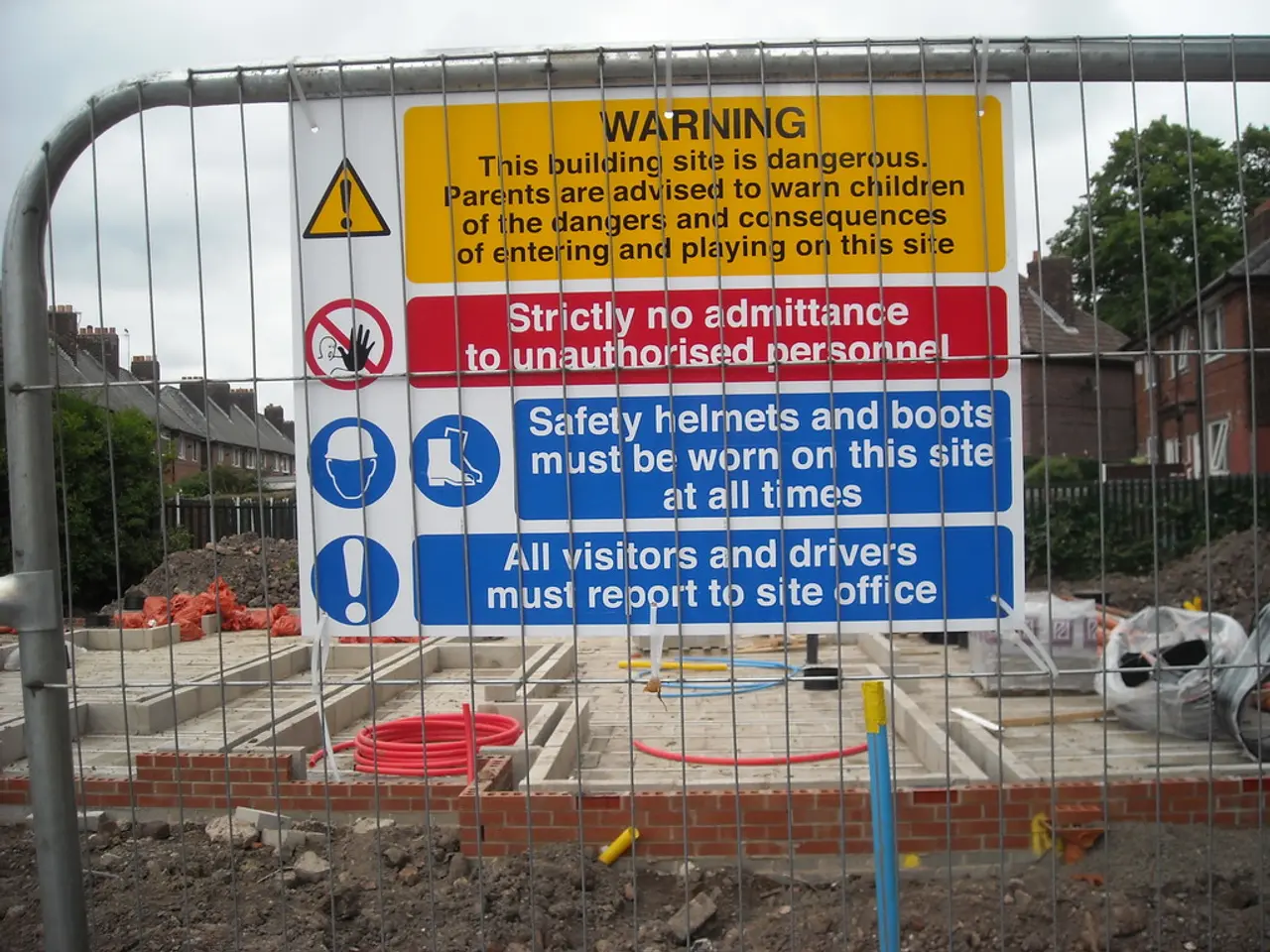Undermining Negotiation Zeal: Trump's Approach
## U.S. Stance on Russia and Ukraine: A Complex Evolution
In recent developments, the U.S. approach towards Russia and Ukraine has shown a complex and evolving dynamic, significantly impacting both the peace process and Russia's response.
### Trump's Tougher Stance and Sanctions
U.S. President Donald Trump has taken a more assertive stance against Russia, issuing a 50-day ultimatum demanding a ceasefire in Ukraine under the threat of harsh sanctions. This ultimatum included a proposal to impose 100% secondary tariffs on countries doing business with Russia if a ceasefire is not implemented [1][3]. However, Russia has rejected this ultimatum, emphasizing its commitment to achieving its goals through diplomacy or military means [1][3].
### Arming Ukraine: A Significant Shift
President Trump has also announced plans to arm Ukraine with offensive weapons, including potentially long-range missiles. This move is intended to shift the trajectory of the war and influence Vladimir Putin's considerations regarding a ceasefire. The change from defensive to offensive weapons is seen as a significant escalation in U.S. support for Ukraine [4].
### Negotiated Settlement: The Preferred Path
The U.S. emphasizes a negotiated settlement as the preferred path to end the conflict, a view shared by both the Trump and Biden administrations. This approach is seen as favoring Ukraine more than a prolonged military conflict, which could lead to significant territorial losses without a decisive victory for either side [2].
### Russia's Response: Rejection of Ultimatums and Continued Military Action
Russia has outright rejected any ultimatums for a ceasefire, calling them "unacceptable." This stance reflects Russia's determination to achieve its objectives in Ukraine through any means necessary [3]. Despite diplomatic overtures, Russia continues its military offensive, aiming to secure strategic gains during the summer [1][2].
### Diplomatic Statements and Military Action: A Dual Approach
Russia emphasizes its readiness for diplomatic efforts while maintaining that military action will continue until its goals are met. This dual approach allows Russia to maintain diplomatic channels while pursuing military objectives [3].
### The Language of Ultimatums, Blackmail, and Threats: Unacceptable to Russia
The language of ultimatums, blackmail, and threats is unacceptable to the Russian government, according to Maria Zakharova, spokeswoman for the Foreign Ministry in Moscow. The government in Moscow accuses U.S. President Donald Trump of signaling the abandonment of peace efforts with new arms deliveries to the government in Kiev [2].
### Medvedev's Statements: A Perspective from the Past Leadership
Former Russian President Dmitri Medvedev suggested that if there is an escalation of the war with regard to Europe, Russia must act accordingly, react in full, and potentially carry out preventive strikes. Medvedev described the current situation as a proxy war, but in essence, it is a full-scale war, involving downing of Western rockets, satellite reconnaissance, and packages of sanctions [4].
### Zakharova's Statements: Interpreting Arms Deliveries and Sanctions
Zakharova stated that the new arms deliveries to Ukraine are interpreted as a signal to continue the bloodshed and abandon the peace process by the Kiev regime. She also downplayed the effect of new sanctions, considering the threat of them to be banal due to the unprecedented number of sanctions and restrictions already imposed [2].
In conclusion, the U.S. stance on Russia and Ukraine is marked by a complex and evolving approach that impacts both the peace process and Russia's response. The U.S. emphasizes a negotiated settlement, while Russia continues its military offensive and rejects ultimatums. The language of ultimatums, blackmail, and threats is unacceptable to the Russian government, and the former Russian President Dmitri Medvedev has suggested that Russia must be prepared to react fully if there is an escalation of the war.
- The U.S. policy, whether it's regarding community issues or international conflicts like war-and-conflicts in Ukraine, often involves a dynamic approach that intertwines with politics and general news.
- The U.S. is reported to have announced plans for employment policy changes, such as arming Ukraine with offensive weapons, which are seen as influencing the outcomes of war-and-conflicts like the one in Ukraine, highlighting the intersection of domestic and foreign policies.








